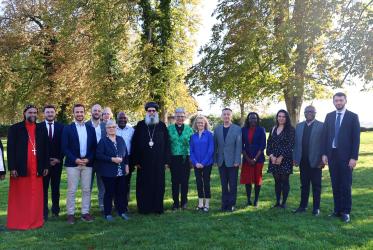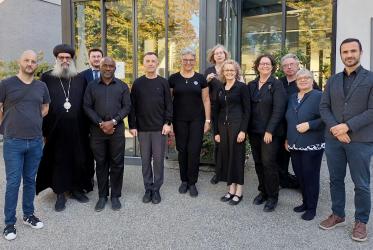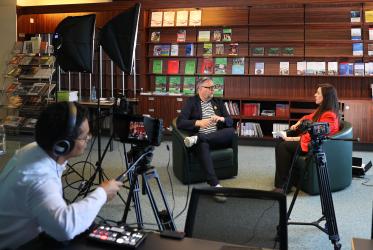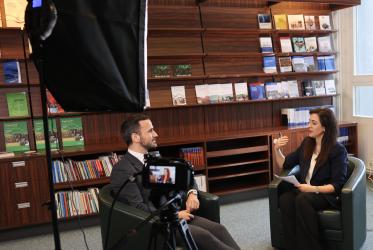Displaying 21 - 40 of 248
Churches in Africa agree on guidelines for disability inclusion
19 December 2023
Ellyanne Chlystun-Githae Wanjiku to COP28: “listen more to children”
13 December 2023
WCC webinar explores decolonizing beauty
11 December 2023
Young Black Europeans: “common witness has an open ear”
30 November 2023
Thirty days that changed the ecumenical movement
23 October 2023
Recommended Practices to Combat HIV-Related Stigma
A Guidebook for Local Faith Communities
05 October 2023
Faith Sector Implementation of the Global AIDS Strategy
05 October 2023
ACT Alliance general secretary: “equity is not negotiable”
26 September 2023


















